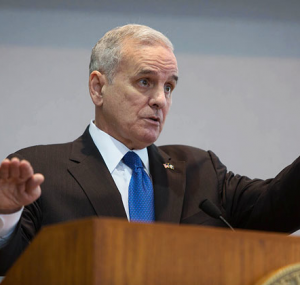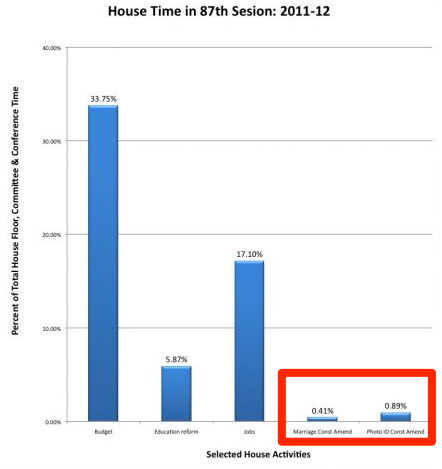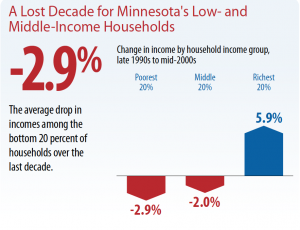By Duane Benson (Guest Commentary)
 I have a confession to make. I am actually glad that elected representatives do not always “do what the people want.” If they did, we would have government from floor to ceiling, and no taxes. Yummy, but ultimately bankrupting.
I have a confession to make. I am actually glad that elected representatives do not always “do what the people want.” If they did, we would have government from floor to ceiling, and no taxes. Yummy, but ultimately bankrupting.
The idea of representative democracy really is to give the public what is collectively realistic, not everything that we want. What is collectively realistic is best delivered if there are a lot of bipartisan fingerprints on the final product. No one lawmaker, or one party, is suppose to “sweep the table.”
Whether we’re talking about the congessional “fiscal cliff” negotiations or the new Legislature’s budget, we need people coming at problems from more political angles to shape the final rascal. We should care little if the parties to the negotiation get along. But we should care that the product gets legitimately checked and balanced by both the House and the Senate, and all political perspectives. Pucker your lips and say it with me now: “Bipartisan.” Continue reading →
 Albert Einstein said “anyone who has never made a mistake has never tried anything new.” In the wake of reports that new e-gambling revenue is proving to be insufficient to fund the new Vikings stadium, Governor Mark Dayton and other stadium proponents recently have been heard mumbling similar sentiments.
Albert Einstein said “anyone who has never made a mistake has never tried anything new.” In the wake of reports that new e-gambling revenue is proving to be insufficient to fund the new Vikings stadium, Governor Mark Dayton and other stadium proponents recently have been heard mumbling similar sentiments.













